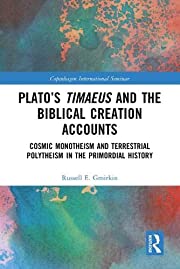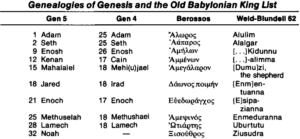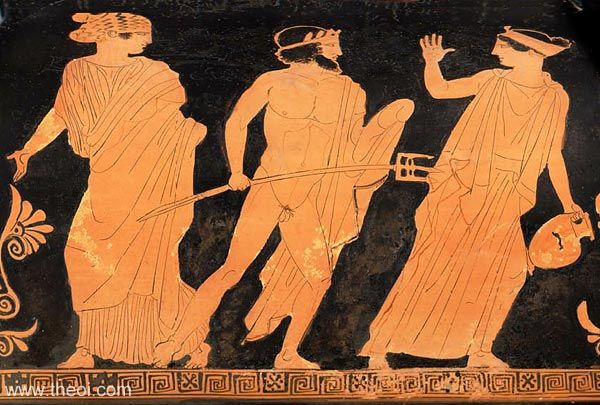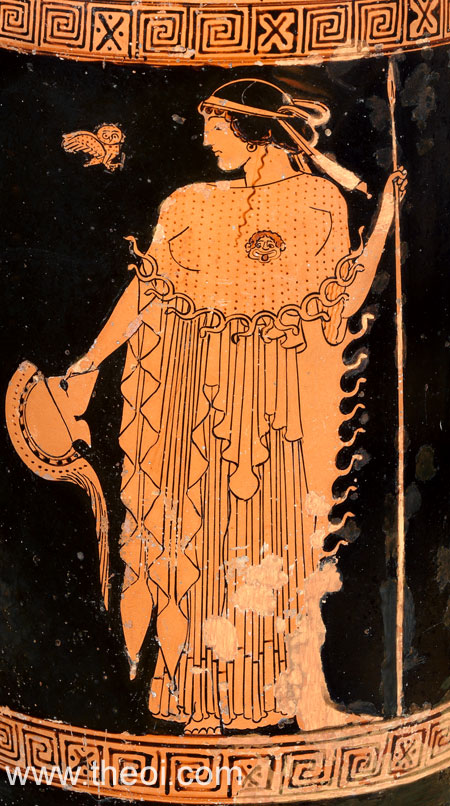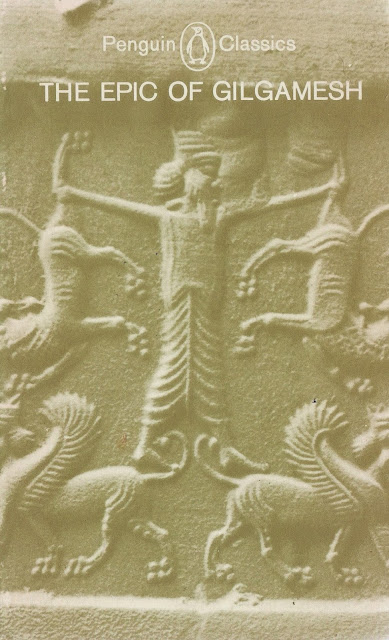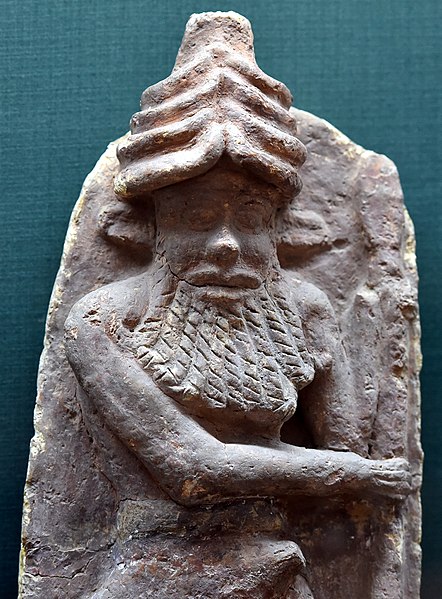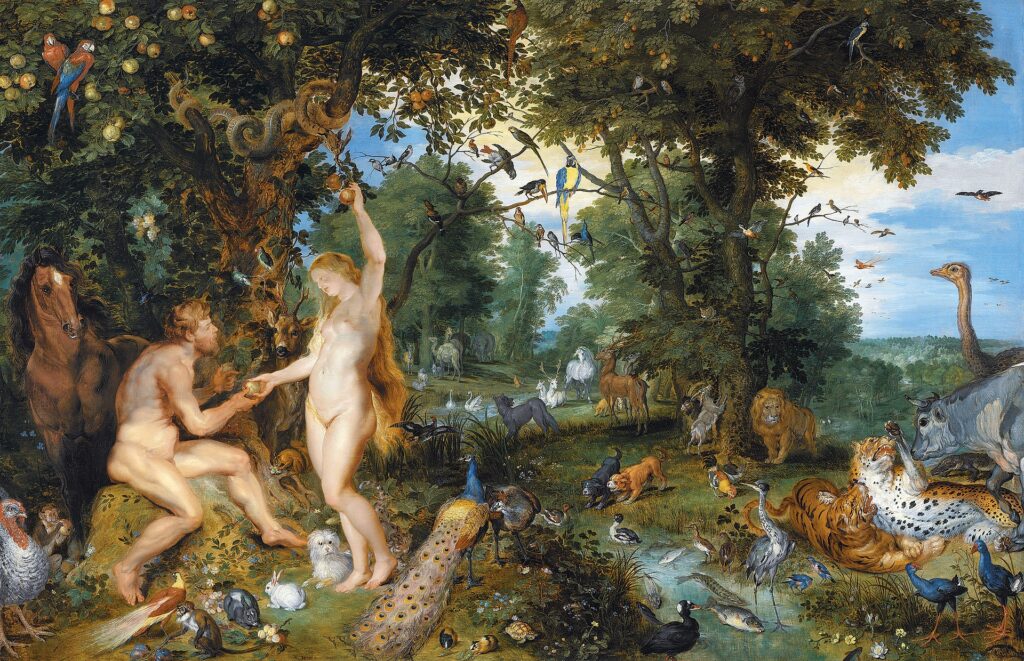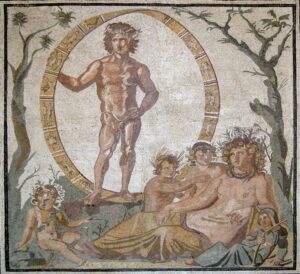Is it possible to set forth a plausible case that the Genesis author of Noah’s Flood was inspired in any way by his reading of Plato’s myth of Atlantis? There can be no doubt that the author was influenced by an ancient Mesopotamian story so let’s establish that undeniable source for Genesis with Russell Gmirkin’s own acknowledgement:
Even if the most ancient version of the deluge comes from the Sumerian tradition, and even if the biblical writer knew of this tradition, he inserted it into a platonic framework. . . . The first eleven chapters of Genesis are indeed inspired by Mesopotamian myths, but there is a more recent Greek layer that is just as obvious. The evolution of humankind in the Bible—from the ideal life in Eden to the degeneration that led up to the deluge, and from the discussion of patriarchal life to the gift of laws— is all found in Plato’s dialogues. (Wajdenbaum, 107)
In the Primordial History, the Mesopotamian flood story, with its survival of Utnapishtim and his family and servants in a boat, had undeniable literary parallels to both the J and P versions of the Noachian flood. (Gmirkin, 10 — J and P are scholarly abbreviations pointing to different sources thought to lie behind the biblical literature: for a critical discussion on J and P in the Genesis Flood see Rendsburg on Genesis and Gilgamesh: Misunderstanding and Misrepresenting the Documentary Hypothesis (Part 2))
What, then, is Gmirkin’s view of that “more recent Greek layer” that Wajdenbaum (see the side box) speaks about?
Here are the common elements between Plato’s story of Atlantis and the Genesis Flood:
-
- Both stories are preceded by a “golden age” of innocence and abundance when the deity (Poseidon, Yahweh) ruled directly with his people;
. - Both stories depict a descent into corruption after sons of gods marry mortal women: in the myth of Atlantis immorality increases over generations as the divine element in the demigods becomes diluted through ongoing marriages with mortals; in Genesis the corruption is said to happen following the sons of the gods taking women and producing “nephilim”. (An important note needs to be injected here for those of us conditioned to think that Genesis 6 is referring to demons (“sons of god/s”) descending to earth to take human women. That interpretation arose later in Jewish tradition with works like Enoch and Jubilees. There is no suggestion in Genesis 6 that these “sons of god/s” were demonic or evil. They are introduced, rather, as producing “men of renown”, though they later descended into violence.)

This image from https://www.greece-is.com/the-search-for-atlantis/ is a brilliant reminder that Atlantis was created entirely from Plato’s imagination.
- Both stories are preceded by a “golden age” of innocence and abundance when the deity (Poseidon, Yahweh) ruled directly with his people;
.Plato’s Critias 121
[After earlier describing the god Poseidon taking the human girl Cleito and with her producing generations of highly renowned kings, the first named Atlas … ] But when the divine portion within them began to fade, as a result of constantly being diluted by large measures of mortality, and their mortal nature began to predominate, they became incapable of bearing their prosperity and grew corrupt. Anyone with the eyes to see could mark the vileness of their behaviour as they destroyed the best of their valuable possessions; but those who were blind to the life that truly leads to happiness regarded them as having finally attained the most desirable and enviable life possible, now that they were infected with immoral greed [or “lawless ambition”] and power.
Zeus looks down, sees the degeneration, and decides to pass judgment:
Zeus, god of gods, who reigns by law, did have the eyes to see such things. He recognized the degenerate state of their fair line and wished to punish them, as a way of introducing more harmony into their lives. He summoned all the gods to a meeting in the most awesome of his dwellings, which is located in the centre of the entire universe and so sees all of creation. And when the gods had assembled, he said . . .
Genesis 6:1-12
Now it came to pass, when men began to multiply on the face of the earth, and daughters were born to them, that the sons of God saw the daughters of men, that they were beautiful; and they took wives for themselves of all whom they chose. . . . There were giants on the earth in those days, and also afterward, when the sons of God came in to the daughters of men and they bore children to them. Those were the mighty men who were of old, men of renown.
Yahweh, like Zeus, sees the corruption and announced judgement:
Then [Yahweh] saw that the wickedness of man was great in the earth, and that every intent of the thoughts of his heart was only evil continually. And [Yahweh] was sorry that He had made man on the earth, and He was grieved in His heart. . . .
The earth also was corrupt before God, and the earth was filled with violence. So God looked upon the earth, and indeed it was corrupt; for all flesh had corrupted their way on the earth.

